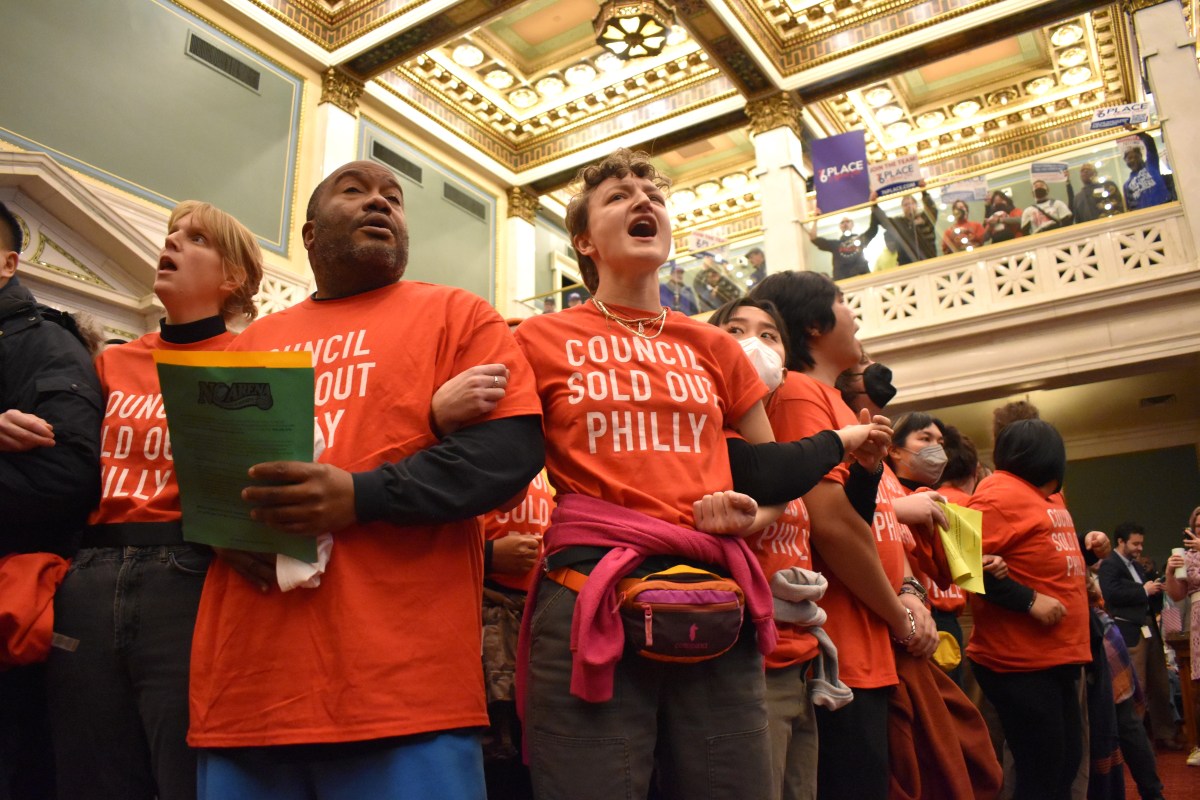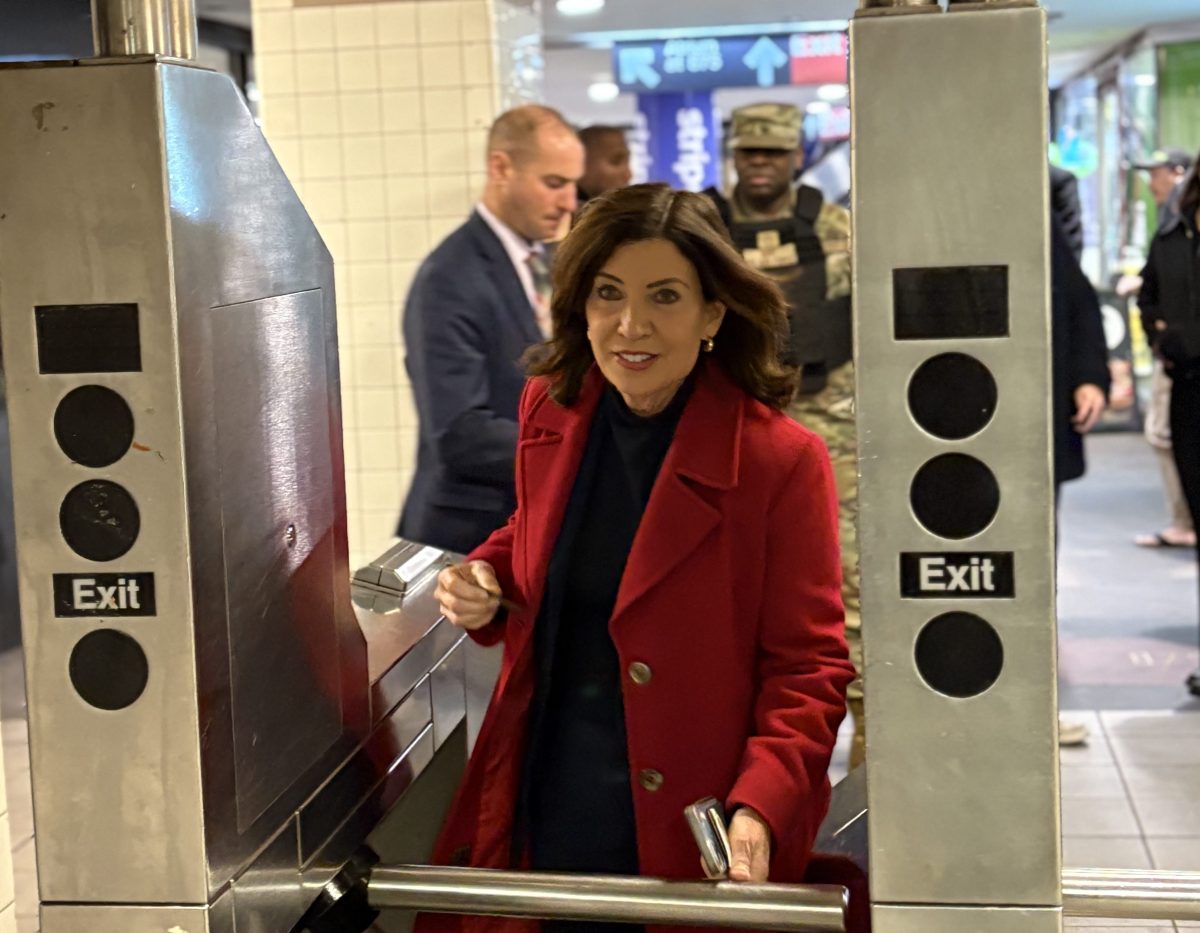WASHINGTON (AP) — President Joe Biden is closing in on a Senate deal on border security and Ukraine funding as the White House tries to resolve one of the last major sticking points: whether to preserve the president’s authority to allow migrants into the U.S. for special cases during emergencies or global unrest.
Republicans deride the authority, known as humanitarian parole, as a Biden administration end run around Congress that allows into the U.S. large numbers of migrants who further tax an already overextended immigration system.
But that power to allow in certain immigrants at certain times is not new or particularly novel. It has been used across political lines for decades to admit people from Hungary in the 1950s, Vietnam in the 1970s and Iraqi Kurds over the 1990s. For recipients, it can be a lifeline.
“The parole gave me this opportunity, it has made me realize my dreams, my life,” said Emilia Ferrer Triay, who came from Cuba in 1980 as a young girl. “Everything changed from the first day I arrived, I saw that I had a future … that there were no restrictions.”
Ferrer was plucked from the Atlantic Ocean between Key West, Florida, and Cuba, along with her uncles and younger brother who had been trying to reach the U.S. via fishing boat. They were part of a massive influx of more than 125,000 Cubans who traveled from Cuba’s Mariel Harbor to the United States that year.
Ferrer, now 57, said that since the beginning, she had the opportunity to go to school and learn English, then went to college. She works full time, and is married with three U.S.-born children. She became a citizen herself eight years after arriving.
“I would be very unhappy if I had to stay in Cuba,” she said. “You have no future, you can’t dream. Here I have been able to do everything.”
Republican senators have refused to approve any further aid for Ukraine or Israel without U.S. border policy changes. The negotiations have been drawn out for weeks, but both sides say they are nearing a deal and the Senate could consider the legislation as soon as next week.
Biden told reporters Thursday, “I don’t think we have any sticking points left.”
“I think they’re definitely closing in on parole language issue that has to be addressed,” Sen. John Thune, R-S.D., said at the Capitol Thursday. “And in a way that limits the abuse the authority. We’ll wait and see when the text comes out and how it is, but I think there’ll be a lot of these questions hopefully to get answered.”
In recent days, negotiators have discussed potential compromises, including capping the number of migrants eligible for parole, according to two people familiar with the discussions who spoke to The Associated Press on condition of anonymity to describe the private talks.
Oklahoma Sen. James Lankford, the chief Republican negotiator, said Thursday that he wanted to ensure that the president has to report the number of migrants paroled. “We do have to have greater oversight,” Lankford said.
Voters are increasingly preoccupied with immigration, and it’s expected to be a major driver in the 2024 election. The Democratic administration has been heavily criticized by Republicans who say its policies have only encouraged more migrants to illegally cross the U.S.-Mexico border.
“To the American people, what the Biden administration is doing is illegal. It is incentivizing illegal immigration,” said Sen. Lindsey Graham, R-S.C. He said parole was the administration’s “tool of choice” that has allowed too many people into the U.S.
But the U.S. immigration system has been increasingly strained for years, with each presidential administration testing executive power limits while Congress all along has refused to act on immigration policy. The Biden administration’s approach — to crack down on illegal crossings while opening up new ways for those who come by air with sponsors — is only the latest in a long string of attempts to bring the nation’s immigration system under control.
The authority employed by the administration is known as “parole” because migrants would otherwise be placed in detention as their immigration cases were heard. Instead they are “paroled” or allowed into the U.S. But the authority isn’t related to the criminal justice idea of a person who has been paroled from prison after serving time following a conviction.
Under Biden, the U.S. has relied heavily on humanitarian parole. The U.S. airlifted nearly 80,000 Afghans from Kabul, the capital of Afghanistan, and brought them to the U.S. after the Taliban takeover. The U.S. has admitted tens of thousands of Ukrainians who fled after the Russian invasion.
In January 2023, the administration announced a plan to admit 30,000 people a month from Cuba, Haiti, Nicaragua and Venezuela, provided those migrants had a financial sponsor and flew to the U.S. instead of going to the U.S.-Mexico border for entry. The U.S. has created a mobile app for people to apply online where they are, instead of traveling to the U.S.
Texas sued the administration to stop the allowances, arguing in part that the plan was drawing too many people to the border. Republican senators are also targeting the program.
Democrats in the Senate and immigrant advocates say parole is a valuable tool that provides urgent relief for people fleeing unrest and helps manage the border. Before the plan, migrants from those nations were the vast majority of people entering the U.S. illegally. Afterward, arrests for those nationalities dropped dramatically.
“That is a great model for the future that we have also seen reduce congestion at the border,” said Andrea Flores, who worked as a policy adviser in the Obama and Biden administrations and is now a vice president at FWD.us, an immigration advocacy organization.
Over the years, parole has been used to offer quick safe haven. Administration officials are reluctant to cut off the ability to use the authority not just now, but into the future.
“It is very important to understand that it is used today as a way that the administration is able to better manage the flow, in a planful way, of individuals to the border,” said Connecticut Sen. Chris Murphy, the lead Democrat in Senate negotiations.
Political journalist Marcelo Conde fled Nicaragua last year after he received death threats because he was not in favor of President Daniel Ortega. Conde feared that if he left Nicaragua legally, he would be detained and imprisoned when authorities saw his name on his passport.
“The parole became an opportunity, but also a dichotomy because it was not approved quickly,” Conde, 34, said in a recent telephone interview from his home in Las Vegas. “I waited for more than 100 days,” he said.
After he finally arrived in the U.S., he received an authorization to work. In Nevada, he is waiting tables. Conde speaks Spanish, French and English and hopes soon to work as a journalist in the U.S.
Salomon reported from Miami.





















